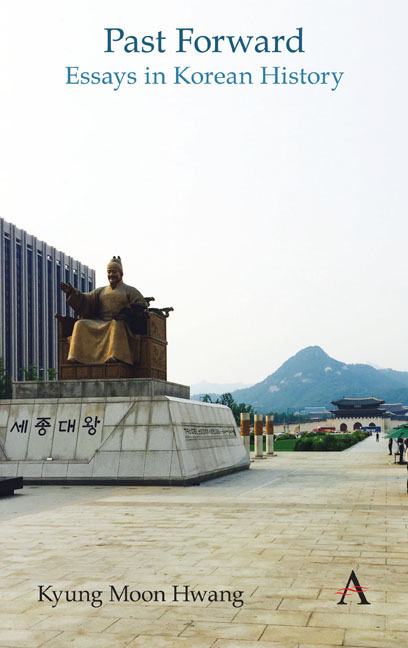Book contents
- Frontmatter
- Contents
- List of Figures
- Foreword
- Chronologies of Korean History
- Themes
- Acknowledgments
- Note on Romanization and Spelling
- Part I Circulating History
- Part II Durable Traditions
- Part III Ancient Remains
- Part IV Dynastic Depths
- Part V Modern Origins
- Part VI Challenges of Nationhood
- Part VII History Makers
- Part VIII External Presences
- 52 Korea's Complicated Relationship with China
- 53 How Chinese was Chinese History?
- 54 Tiananmen and the Power of History
- 55 Lotte between Korea and Japan
- 56 Comfort Women Beholden to History
- 57 A Modest Proposal for Dokdo
- 58 The General Sherman Incident of 1866
- 59 Depictions of the United States
- 60 Overcoming Old Views of Korea–United States Ties
- 61 Foreign Language Dependency
- Part IX Trials of Modernization
- Part X Gripped by the Past
- Index
59 - Depictions of the United States
from Part VIII - External Presences
- Frontmatter
- Contents
- List of Figures
- Foreword
- Chronologies of Korean History
- Themes
- Acknowledgments
- Note on Romanization and Spelling
- Part I Circulating History
- Part II Durable Traditions
- Part III Ancient Remains
- Part IV Dynastic Depths
- Part V Modern Origins
- Part VI Challenges of Nationhood
- Part VII History Makers
- Part VIII External Presences
- 52 Korea's Complicated Relationship with China
- 53 How Chinese was Chinese History?
- 54 Tiananmen and the Power of History
- 55 Lotte between Korea and Japan
- 56 Comfort Women Beholden to History
- 57 A Modest Proposal for Dokdo
- 58 The General Sherman Incident of 1866
- 59 Depictions of the United States
- 60 Overcoming Old Views of Korea–United States Ties
- 61 Foreign Language Dependency
- Part IX Trials of Modernization
- Part X Gripped by the Past
- Index
Summary
South Koreans’ views of the United States have often reflected their perspectives on the history behind this relationship. Of course, there is no uniform “America,” despite how public opinion surveys might frame the questions. The perception of America depends on whether one is talking about its military, economic or cultural impact, its people, or the US government and political leadership. And just as there is no single America, “South Koreans” hold a range of viewpoints depending on their age, regional background, level of education, and personal experiences with America or Americans, either in South Korea or abroad. Still, it is remarkable how historical understanding has affected the relative significance of these factors in forming South Koreans’ impressions of the United States.
In the opening years of the twenty-first century, anti-American sentiment in South Korea was much stronger than it is today. It is difficult to determine whether such developments affected major political changes or, alternatively, resulted from political actions, but not coincidentally this prevailing skepticism of America corresponded to the presidency of Roh Moo-hyun, elected in 2002. He had campaigned on promises of reassessing the country's ties to the United States and won the election in December amid large demonstrations over two schoolgirls killed accidentally by an American military vehicle. Anti-American passions had been inflamed earlier that year when judges in the 2002 Winter Olympics, hosted by the United States, stripped a Korean speed skater of his gold medal in favor of an American athlete. And such nationalist passions reached a fever peak during the 2002 Korea–Japan World Cup a few months later.
One can argue, however, that anti-Americanism had been building for some time, ever since the 1980s when students and others fighting for democratization believed, in defiance of received wisdom about America, that the United States was complicit in the 1980 Gwangju massacre. This had spurred them to reexamine the comprehensive structural forces behind South Korean society and history, particularly in relation to the United States. They reconsidered, for example, America's role in instigating national division after liberation from Japanese rule in 1945, which led to the 1950–1953 Korean War, and in cultivating South Korean dictatorships thereafter, all the while implanting a systematic dependence on America's Cold War interests.
- Type
- Chapter
- Information
- Past ForwardEssays in Korean History, pp. 172 - 173Publisher: Anthem PressPrint publication year: 2019



